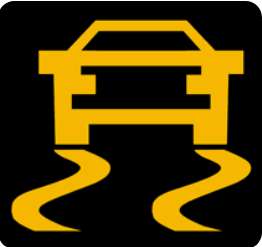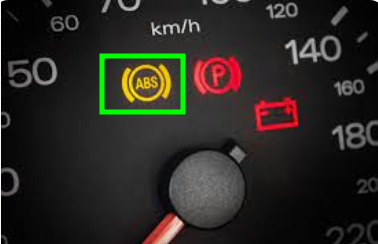Electronic Stability Control (ESC)`

ESC is a computer-controlled technology that detects reduced traction and automatically makes corrective adjustments to prevent loss of control. The ESC lamp comes on to alert the driver that the system has activated and the car is approaching its handling limits. It’s a powerful driver aid but it can’t save a car once its traction limits have been exceeded.
Electronic Stability Control (ESC) - was one of the first, and most effective, safety systems aimed at preventing accidents happening in the first place rather than, like airbags or seatbelts, reducing the severity of injuries.
It’s so effective it’s been fitted as standard on all new cars since 2014.
Anti-lock braking systems (ABS) have been around for a long time and help you maintain maximum braking effort and full steering control in an emergency, without skidding. ESC builds on the capability of antilock brakes.
here you can see if you have issues with your ABS

Cardiopulmonary resuscitation (CPR)
(heart-lungs resuscitation) Definition: Cardiopulmonary resuscitation (CPR) is an emergency lifesaving procedure performed when the heart stops beating. It involves a combination of chest compressions and artificial ventilation to manually preserve intact brain function and maintain circulation of oxygenated blood to the brain and vital organs. CPR is intended to extend the window of time in which a person can be revived without permanent brain damage and is a critical component of the chain of survival in cardiac arrest situations.